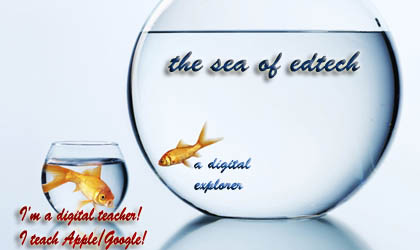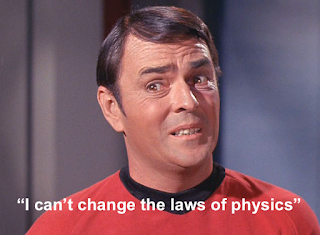I just got back from a morning session of department head PD looking over Damian Cooper’s ideas on assessment; it was a lot to take in and I’m trying to give some voice to the doubts while also sorting through what I liked about Cooper’s ideas.
Time management is a concern I have. It’s one thing to suggest that assessment be the result of diligent and ongoing consultation with students, but it’s another to ask that this be done when you have 90+ students in a single semester. A system that is still mired in 19th and 20th Century ideas about reportage and teachers who want to make assessment meaningful are about as far apart as two things can get. Teachers trying to do this in the current framework would be stretched mighty thin.
Our reportage is still very much time specific and causes a great deal of stress with teachers and students. We’re coming up on midterms now, we’ve been given a specific time (down to the minute) when percentage grades, specific learning skills and precise comments are required. In the next breath we’re being told to open up assessment, despecify grades into learning levels and provide constant meaningful assessment as feedback.
Perhaps the most valuable thing Cooper’s ideas can do is create a political movement for change at the Ministry level. By changing parental (and teacher) expectations around assessment, perhaps we can move towards a more flexible, meaningful reporting environment that still provides post secondary education with the yard stick they need for entrance, but also allows us to focus more on developing student learning.
Imagine a system where teachers and students create a constantly evolving assessment space that is open to parents, completely transparent. Rather than trying to hit specific timelines behind closed doors, teachers are able to develop assessment with students and constantly update how students are transitioning through the curriculum. The criteria are open and wide ranging, taking into account everything from soft skills like teamwork and self directed learning, all the way to curriculum specific hard skills. This open system would have to get rid of the edu-speak because students and teachers must be able to observe and participate in it while parents would be able to look in; a truly transparent and meaningful exercise in assessment. A less rigid grading system not dictated by mid-term specific timing, or percentage marks means that grades could evolve and develop while a student is with a teacher, allowing for latest, greatest results without math games like weighting creating even more abstract results. Grades would be end-of-course-weighted to ensure a better look at what students have actually learned in the course, rather than forcing early grades before they can demonstrate best work.
The Khan Academy concept of competence would be, perhaps, a better way to consider whether or not a student has actually attained mastery of a concept. Percentage grades are an abstract concept. I got low Cs in high school math up until grade 12, and in my 2 senior years I ended up getting 50s and failing, because I had nothing like the foundation needed to succeed. 50% is an abstract concept, it has nothing to do with whether you know the subject or not, yet we think of it as a pass. Would you want this level of grading to apply to the mechanic who just fixed your brakes? Or the pilot landing the plane? The static, percentage system has somehow become a habit that is seen to have academic validity, because it’s harsh? It seems to offer some kind of certainty? When it comes to hard skills in curriculum, a student knows it or they don’t, they can demonstrate it or they can’t. This isn’t a question of whether they are present or participating, it’s a matter of skill.
The Khan idea is that you either understand the concept and can demonstrate it consistently, or you don’t. If you don’t, you keep hacking away at it without fear of failure, until you get a handle on it. One of the big fears we face in the class is risk aversion, which is almost entirely a result of the arbitrary, static and specific grading and reporting system we use. I couldn’t get grade 12s to try things and fail, they only wanted to do it right the first time (“because I have to get high marks to get into university”). We feed that fear with midterms and percentage grades.
If we’re assessing skills, do you really want to assess it based on “they kind of know it” (is that what a 64% says?), or “they pretty much know it” (77%)? There is no validity in this, just a vague kind of petty certainty, put in place to make it easy for post secondary education to think they are accurately separating the wheat from the chaff; it doesn’t serve learning at all.
I guess I like Damian’s ideas, but simplifying grading from percentages to levels doesn’t go far enough. It really comes down to you can  demonstrate what you know or you can’t. You can do this in many different and meaningful ways, but you either can or you can’t.
demonstrate what you know or you can’t. You can do this in many different and meaningful ways, but you either can or you can’t.
Do or do not, there is no try.
Do you know it or don’t you? Can you demonstrate big understandings or not? This certainly applies to literacy and numeracy, and I’d argue that any subject area that has any kind of coherent development of skills (ie: all of them).
In that brave new world of assessment, post secondary institutions would have to stop thinking that 83% describes a person’s knowledge of a complex field. To begin with, they should start basing entrance on learning skills, which could easily be expanded to target successful criteria for post secondary students (self discipline, ability to overcome learning obstacles, attendance and punctuality, timeliness, peer pressure skills, etc). If teachers could get away from agonizing over abstract percentages that have no real world meaning and simply look at whether or not a student grasps the skills they need to have, we’d finally have assessment serving learning.
FUTURE SCHOOL: A bit of fiction about an open, individualized education system after the Singularity.



















